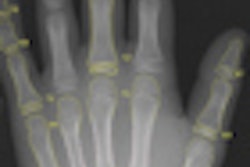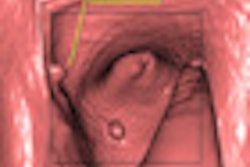
WASHINGTON (Reuters) - A trans-Atlantic spat has erupted after a top U.S. official suggested European patients may be "guinea pigs" for medical devices with less government oversight.
A senior official at the European Commission, in a letter obtained by Reuters, complained to the U.S. Food and Drug Administration (FDA) this month about comments from the FDA's device chief, Dr. Jeffrey Shuren.
In defending U.S. device standards, Dr. Shuren has highlighted a few products that were approved in Europe but not in the U.S. and later pulled from the market for safety reasons.
Speaking to reporters on a conference call in January, he quoted a plastic surgeon as saying "Under the EU system, the public are being used as guinea pigs."
"We don't use our people as guinea pigs in the U.S.," Dr. Shuren added.
Paola Testori Coggi, head of the European Commission's (EC) health and consumers department, objected to Dr. Shuren's remarks in a letter to FDA Commissioner Margaret Hamburg.
"I am deeply concerned that a senior official of the FDA should publicly discredit the regulatory system in Europe in this way," Coggi wrote in the February 18 letter.
The FDA has been criticized by device makers who say regulatory requirements are too inconsistent and unpredictable and discourage development of new technologies.
Both the U.S. and European regulatory systems, "though on different paths, seek to secure a high level of patient safety," Coggi said. If the FDA has evidence of unsafe devices on sale in Europe, "I would appreciate if you could share this information with European regulators," she added.
EC spokesman Frederic Vincent said the letter was sent to "clarify the issue and pass on a clear message."
FDA spokeswoman Karen Riley said the FDA and European regulators "continue to have a very collaborative relationship" that has "benefited both of us quite well for many years."
"All systems should continually be trying to improve" and "that is why both we and our European colleagues are actively looking at ways to help make our systems even better protectors of public health and promoters of new health care innovation," Riley said.
Manufacturers have been arguing the FDA's device oversight is unpredictable and slower than Europe's. At the same time, consumer groups say the FDA does not require enough testing for some risky devices.
The FDA proposed changes to device reviews in January but deferred the most contentious issues. Consumer groups charged the agency with backing down from tougher oversight in response to industry complaints.
President Barack Obama highlighted the changes as an example of efforts to curtail rules that slow economic growth.
In testimony to the U.S. Congress last week, Dr. Shuren said Europe's system did not require government review before a company could market a device or proof of effectiveness.
Coggi's letter said Europe requires "appropriate checks" to show the device is safe and that "any remaining risks are acceptable when weighed against the benefits."
"On both sides of the Atlantic, we are currently assessing how our respective regulatory systems can be further improved. But this is not a reason to pit one system against the other," she said.
By Lisa Richwine
Last Updated: 2011-02-25 20:02:21 -0400 (Reuters Health)
Copyright © 2011 Reuters Limited. All rights reserved. Republication or redistribution of Reuters content, including by framing or similar means, is expressly prohibited without the prior written consent of Reuters. Reuters shall not be liable for any errors or delays in the content, or for any actions taken in reliance thereon. Reuters and the Reuters sphere logo are registered trademarks and trademarks of the Reuters group of companies around the world.



















